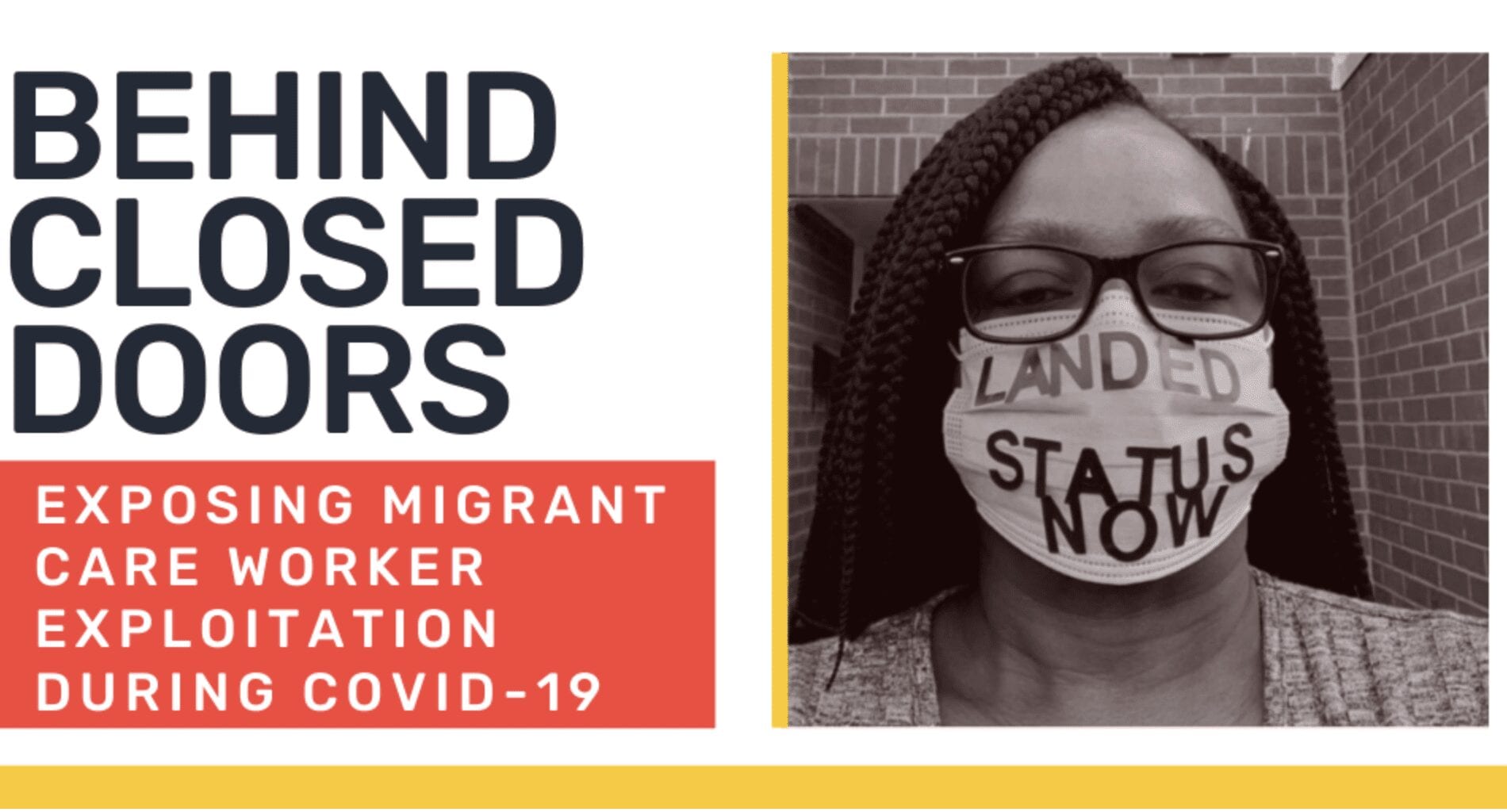
Behind Closed Doors: Exposing Migrant Care Worker Exploitation During Covid-19
Over the last two months, 201 migrant care workers filled out a survey about their experiences living and working during COVID. Respondents were primarily from Ontario (141), followed by British Columbia (40), Alberta (14), as well as 3 from Quebec, one from Manitoba and one from New Brunswick. Most respondents kept working through the pandemic, but a significant number were laid off. All workers were severely impacted by the pandemic.
Labour intensification: As employers, their children, or elderly parents remained at home during COVID-19, migrant workers faced significant labour intensification, working longer hours with more difficult work. Nearly 1 in 2 respondents (48%) that kept working reported longer hours of work. Since many employers prevented care workers from leaving the home even on weekends, many of us found ourselves working 10 to 12-hour days, seven days a week throughout the pandemic.
Unpaid wages: Over 40% of respondents who kept working reported not being paid for any extra hours of work. The scale of labour intensification and wage theft is considerable. Most workers reported being paid for 35 hours a week, while working 50 to 65 hours while being on call at all times. Most workers work on public holidays without extra pay. Even working 50 hours per week (most workers reported working longer than 50 hours), while being paid for 35 hours, averages out to approximately $226 in stolen wages per week, or $6,552 in unpaid wages per worker over the last six months.
More than 1 in 3 workers lost their jobs, were forced to move and could not find work: 73 workers lost jobs during COVID-19. As most care workers live in the homes of our employers, losing work means not only losing income but needing to find alternative housing during a global pandemic. In addition, workers who were laid off while waiting for their PR and Open Work Permit applications to be processed (and are therefore in implied status) cannot look for another employer until they receive a response to their application.
Read more here.
